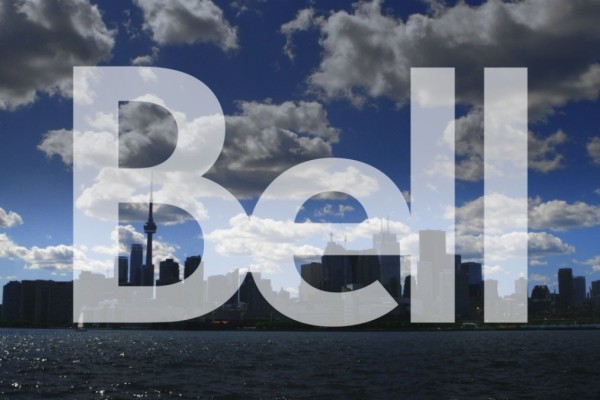Ottawa, Meta escalate schoolyard spat over Bill C-18
Trudeau even breaks out war rhetoric: Big Tech is attacking Canada

Heritage Minister Pablo Rodríguez. Photo from Twitter.
The schoolyard spat between Ottawa and Big Tech went to another level this week after Facebook’s parent company Meta announced it would take its marbles and go home, refusing to carry links to Canadian news stories in order to comply with the new Bill C-18, the Online News Act. Heritage Minister Pablo Rodriquez then held a televised news conference to announce that the federal government would pull its more than $11 million a year in advertising from Meta’s Facebook and Instagram platforms in retaliation.
The move by Rodriquez was an obvious face-saving gesture, as his mishandling of Bill C-18 has been nothing less than a disaster from the start. “It is difficult to recall a more complete public sector failure,” noted Peter Menzies of the Macdonald-Laurier Institute, who blamed the minister’s “stubborn and uninformed management” of the bill.
Rodriquez tried to ram Bill C-18 through committee last year without hearing from Facebook until Meta warned that it might stop carrying links to Canadian news stories if forced by Bill C-18 to pay publishers. Meta claimed that, far from “stealing” content from Canadian publishers, it sends Canadian publishers page views worth more than $230 million a year. Rodriquez then accused Meta of trying to intimidate Canadians, and when an extra day of hearings was held, Liberal MPs took its witnesses to task for “modern-day robber baron tactics.” The committee was in turn taken to school by the Meta witnesses, however, who pointed out that Bill C-18 contravened both Canadian and international treaty law.
Then in May, after the Heritage committee summonsed senior Meta executives for another inquisition, its president for global affairs abruptly cancelled his planned appearance after the hearings were listed as inquiring into Big Tech’s “intimidation and subversion tactics.” That prompted Sir Nick Clegg, a former UK deputy prime minister, to send underlings instead. “The hearing was changed to a much more confrontational one… that seemingly had nothing to do at all with the Online News Act,” testified Kevin Chan. The committee had originally asked for Meta CEO Mark Zuckerberg to testify, but its power to order witnesses to appear does not extend beyond Canada’s borders.
The insignificance of Ottawa cancelling its ads on Facebook and Instagram was calculated by one pundit to equal what Meta earns in one day in Canada. One enterprising blogger noted that the lost ad revenue would amount to less than one hour of Meta’s worldwide turnover.
Prime Minister Justin Trudeau quickly supported his Heritage minister, however, and he did so with nothing less than war rhetoric. “We’re not backing down on this,” he said, remarkably likening the government’s dispute with Big Tech to an attack on democracy. “They made the wrong choice by deciding to attack Canada,” he said in French through a translator. “We want to defend democracy. This is what we’re doing across the world, such as supporting Ukraine. This is what we have done during the Second World War… Canadians will not be bullied by billionaires in the US, billionaires that are impacting negatively our democracy.”
Google also announced last week that it will also drop Canadian news links to comply with Bill C-18, but Rodriguez said the government was only pulling its ads on Meta platforms because it has been “unreasonable, irresponsible, and started blocking news.” He said he is optimistic that Google’s concerns can be addressed in enacting the bill’s regulations by year’s end. Google has signed content deals with numerous Canadian news media through its Google News Showcase, which has allocated US$1 billion worldwide to such deals on a non-negotiable basis, but those are also now in jeopardy.
Facebook has also negotiated millions of dollars in deals with Canadian news outlets, but it has already begun cancelling them because of Bill C-18. It has taken similar steps in other countries recently as it exits news provision worldwide. Meta’s deals with news media reportedly include paying the Washington Post more than $15 million a year, the New York Times $20 million, and the Wall Street Journal $10 million.
Similar legislation is also before the US Congress, prompting its sponsoring Senator Amy Klobuchar to recently urge Canada to stand firm against the tech giants. UK legislators are also considering a similar Digital Markets, Competition and Consumers Bill, potentially opening Google and Facebook up to billions of dollars in combined liability. Their stand against Bill C-18 is likely designed to help defeat those measures.
The refusal of Google and Facebook to pay up is just the latest in a string of miscalculations news media have made since the Internet dawned. They foolishly gave away online access to their content for years and are only recently beginning to charge readers with so-called paywalls. One 2018 analysis concluded that publishers then “stupidly sold their soul to Facebook” because they were desperate for the traffic it provided. “Instead of developing an owned audience of homepage visitors and newsletter subscribers,” noted Techcrunch, “they let Facebook brainwash readers into thinking it was their source of information.”
Canadian publishers eagerly followed the lead of Australian media mogul Rupert Murdoch, who used his considerable media influence to persuade legislators there to introduce a law similar to Bill C-18 in 2021 that has seen media receive about $200 million a year in deals with Big Tech.
Recent studies, however, have shown that the deals mostly benefit the largest publishers who can effectively lobby governments and this could thus stunt the development of online media and “do long-term harm to consumer interests.” One study found that the deals allowed Google and Meta to pick “winners and losers” in Australian media.
Online media in Canada have complained that the long-running lobbying effort for Bill C-18 by the newspaper industry served first to shut them out of assistance, and now will impact them negatively. “This has been a bad bill from the start,” said Jeff Elgie of Village Media, which publishes local news websites across Ontario. “It was based on bad messaging created by others in the industry. The premise of the bill was that Google and Facebook ‘steal’ our content when nothing could be further from the truth.”
With the effort to make Big Tech pay up now collapsing, Elgie said that online media face the double whammy of not only losing vital traffic sent their way by Big Tech, but also their financial support from Google and Facebook. “We go out of our way to make sure our content is very search friendly, and we happily put our content on Facebook—because we get massive value back from those companies.” Elgie added that attempts to explain this position “have fallen on deaf ears with our Government, particularly with our Minister of Heritage.”
Marc Edge is a journalism researcher and author who lives in Ladysmith, BC. His books and articles can be found online at www.marcedge.com.










